Universities respond to the foot–and-mouth (FMD) outbreak
Australia’s universities are playing leading roles in responding to Indonesia’s FMD outbreak – delivering support to our neighbours and helping stop the spread.
Here’s what some of our member universities are doing to help.
 victoria University
victoria University
Professor Vasso Apostolopoulos is a leading researcher in immunology, vaccines and drug development, and contributes significant expertise to Australia’s response to health challenges – including COVID-19 and more recently to FMD.
Given her expertise, she will be starting work into developing a vaccination for FMD and will also undertake computational chemistry studies to develop effective drug treatments for the disease.
 The University of Sydney
The University of Sydney
Professor Emeritus Peter Windsor, expert in livestock health at The University of Sydney, has been a prominent leader in this area for a considerable period of time – often contributing to the national conversation and Australia’s research effort. After conducting training of veterinarians in Indonesia in the early 1990’s on disease investigation, Professor Windsor has had an FMD watching brief on Southeast Asia, spending 19months living in the Philippines in 1998-99 assisting in the successful eradication of FMD in that country.
He has since worked mostly in Lao PDR and Cambodia, conducting applied research on FMD control including vaccination and biosecurity strategies and is also currently reviewing the South-East Asia and China FMD campaign (SEACFMD) for the World Organisation for Animal Health (WOAH, formerly OIE).
Some of the notable work led by Professor Windsor includes:
- Extensive research since 2007 on FMD in the Mekong region, funded with support from Australian Centre for International Agricultural Research (ACIAR) to improve FMD and transboundary diseases control in the smallholder livestock system in SE Asia.
- Applied research funded by the Department of Foreign Affairs and Trade (DFAT) funded Business Partnership Program (BPP) that found that medicated molasses blocks for livestock can reduce smallholder farmer poverty and fight climate change.
- This work led to the development of AgCoTech Global, a new Australian-led business to produce medicated molasses blocks that reduce greenhouse gas emissions from cattle and buffalo, with a block factory now constructed in Laos and potentially other countries, providing supplements to smallholder farmers, local employment, driving regional development, managing livestock disease and contributing to the mitigation of climate change.
- This work built on considerable applied research on enhancing smallholder livestock conducted in the Mekong region – documented regularly as blogs and scientific papers.
- Professor Windsor and his team at the university also found that the pain management product Tri-Solfen(R) developed in Australia for mulesing in sheep, may be an inexpensive and effective solution to treat FMD, instead of the antibiotics currently used. After clinical trials in Laos and Cameroon, results have shown emphatically that when the product is applied to FMD lesions, infected animals return to eating and walking normally within just a few days.
- He and collaborators have co-authored many scientific articles that endeavours to help understand the challenges of FMD research and control programmes in Southeast Asia.
 Charles sturt university
Charles sturt university
Charles Sturt University recently opened a Biosecurity Training Centre (BTC) with the Federal Government which will train their staff to prevent and manage outbreaks like FMD. The centre recently launched a new research project headed by Professor Jade Forwood which will focus on reducing the disastrous impact of zoonotic diseases including Japanese encephalitis, African swine fever and akabane virus on Australia’s agriculture industry.
This research will continue for three years with the aim of making us better prepared for future virus outbreaks.
 CQUniversity Australia
CQUniversity Australia
CQUniversity researchers have identified a potential sensor system that can help detect early signs of diseases in livestock. This new technology will give us a real opportunity to enable faster detection and response time to key emergency diseases such as FMD.
CQU’s Precision Livestock Management Group is involved in testing and evaluating the emerging smart tag technologies as well as developing behavioural algorithms that turn vast amounts of data into useful information. More information can be found here.
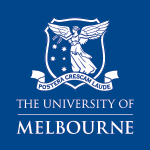 The University of Melbourne
The University of Melbourne
The University of Melbourne’s Centre of Excellence for Biosecurity Risk Analysis (CEBRA) is heavily involved in the response to the FMD crisis.
- CEBRA is working with the Australian Centre for International Agricultural Research (ACIAR) on project evaluation for the control of FMD in Indonesia, and other pests in PNG and Timor-Leste, and this will likely ramp up in the coming months.
- CEBRA ran the recent structured expert judgement exercise to estimate the probability of an FMD outbreak in the next 5 years, used by the CVO (11.6%).
- The University of Melbourne is also heavily invested in the development of the AADIS model, which informs a considerable amount of planning for outbreaks (FMD and otherwise).
The university is also contributing to the public understanding of the crisis through outreach such as:
- Protecting Australia from foot-and-mouth disease – By Professor John Fazakerley
- Yes, wash your shoes at the airport – but we can do more to stop foot-and-mouth disease ravaging Australia – By Associate Professor Susan Hester (UNE) and Biosecurity research fellow Aaron Dodd (The University of Melbourne)
 James cook university
James cook university
An academic from James Cook University is working with natural gas companies and livestock producers in Southern/Central Queensland, to build stronger biosecurity defences against FMD.
Some of the work being undertaken includes:
- Contributing to the development of risk assessment tools and implementation of strategies to minimise on-farm risk.
- Contributing to the review of policies in relation to workwear (clothing, boots and other), including exclusion timeframes for employees that have travelled to high-risk countries or might have been in contact with livestock.
- Raising awareness around the risk of introduction of FMD with food products (especially any meat products from overseas, even legally imported).
- Development of strategies to reduce off-camp risk with food and clothing.
- Review and implement improvements in cleaning vehicles and equipment procedures.
- Provide technical risk input on the development of software to enable digital staff risk assessment, compliance management and enhanced communication.
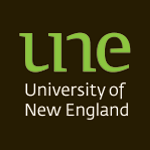 The university of new england
The university of new england
The University of New England is playing an important role in providing expert commentary on biosecurity to ensure accurate information is available and accessible to the public through outreach such as:
- How would a Foot and Mouth Disease outbreak affect Australia?
- A/Prof. Susan Hester from UNE co-authored an article for The Conversation which focuses on what biosecurity measures can be implemented to avoid FMD outbreak in Australia.
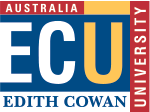 Edith Cowan University
Edith Cowan University
Edith Cowan University is a significant contributor to research efforts that endeavour to bring understanding, prevention and response to FMD. Ongoing contributions are being made to the national conversation through the publication of research findings in addition to engagement with local and national media, including the Australian Science Media Centre. Notably, biosecurity expert Deborah Evans has been a prominent voice in the media since the outbreak, with her expertise reaching over 7 million.
Separately, ECU is leading research to develop a framework towards biodefence of Australian agriculture, in alignment with the international biodefence strategy. Research findings indicate the existing biosecurity framework in Australia lacks preventative security measures to mitigate threats of a malicious or deliberate nature. This research may assist the collective response to the Indonesian FMD outbreak by supporting national biosecurity policy in the adoption of preventative security measures at the farming level.
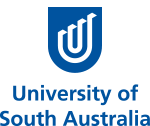 University of South Australia
University of South Australia
Experts from the University of South Australia are available to speak about a range of related issues concerning mental health in rural communities and the environment.
- Dr Kate Gunn works with rural communities and farmers to address health and mental health related issues. Dr Gunn is also writing on this now with an industry group, highlighting the potential risks of FMD to farmers mental health, and what we recommend is done about managing this risk in the event of an outbreak.
- Dr Permal Deo has a background in Molecular Biology with a focus on advanced glycation endproducts (AGEs), and food safety.
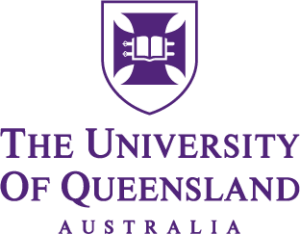 The university of queensland
The university of queensland
Professor Michael McGowan from the University of Queensland managed The Royal Veterinary College’s response to FMD in the 2001 outbreak in the UK. The College diagnosed the third case of disease and went on to organise a large-scale surveillance program in sheep flocks across southern England and Wales. Since returning to Australia, Professor McGowan has advocated for veterinary schools to play a role in responding to exotic disease outbreak.
The University of Queensland is among consortium partners for the APCOVE project, established to strengthen field veterinary epidemiology capacity in the Asia Pacific region. The consortium helps to train ‘animal disease detectives’ to detect, prevent and control animal disease outbreaks that may impact animal and human health, and farmer livelihoods. Associate Professor Joerg Henning has developed several training modules for APCOVE, including a case study on an FMD outbreak investigation. Indonesia is an implementing partner in this project.

